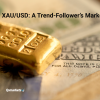OPENING CALL: The Australian share market is expected to open lower. The SPI Futures is expected to be down 23 points.
The Bank of Mexico lowered interest rates Thursday for the first time in more than five years in a split vote, citing slowing economic growth, lower inflation and a decline in debt yields in Mexico and abroad.
Alibaba boosted sales 42% and more than doubled profit in the latest quarter, beating estimates and showing that the Chinese e-commerce giant is continuing to boom despite a saturated market and economic weakening amid the U.S.-China trade conflict.
Overnight Summary
Each Market in Focus
Australian shares slumped in the sharpest one-day retreat in more than three years, outpacing declines elsewhere in the region.
The S&P/ASX 200 sank 2.9% to 6408.1, tracking Wall Street’s retreat overnight as bond yields flashed warning signs and after weak economic data out of China — Australia’s biggest export market.
The close matched early-June levels and marked a 6.4% fall from the all-time finishing high notched at the end of July. Losses were across the board, led by a 5.3% drop in the energy sector.
The four biggest banks closed down about 3% each, while Woodside Petroleum shed 6.7% after releasing 1H results. Telstra fared better on the back of full-year numbers, losing 1.8%.
U.S. stocks swung between small gains and losses intraday as upbeat data on Americans’ spending habits helped to ease investors’ fears about a possible recession.
The latest retail sales data showed consumer spending, which accounts for more than two-thirds of U.S. economic activity, remains a pillar of domestic growth, even as other parts of the economy falter and the outlook overseas darkens.
The Dow Jones Industrial Average added 26 points, or 0.1%, after earlier rising as much as 133 points. The S&P 500 edged up 0.1%, and the Nasdaq Composite fell 0.3%. The moves come a day after all three major indexes dropped about 3% and the Dow industrials suffered their biggest decline of the year.
Strong results from retail giant Walmart added to the upbeat sentiment ahead of the crucial holiday shopping season. Walmart shares jumped 4.7%.
Gold has benefited from a spate of supportive factors over the past few months, and some bulls now see the precious metal making a climb to a record high of $2,000 an ounce.
It will need more fuel to make that move, however, and the timeline for that rally remains uncertain.
December gold futures rose $3.40, or 0.2%, to settle at $1,531.20 an ounce to tally the highest most-active contract settlement since April 2013, according to FactSet data. The record settlement high for futures prices was at roughly $1,891.90 on Aug. 22, 2011, though prices did touch intraday highs near $1,918 around that time.
In other commodity markets, September wheat prices were down 4 3/4 cents at $4.69 cents.
Oil prices were on track for their second consecutive daily decline amid worries that slowing global growth will weigh on demand.
U.S. oil prices were recently down 2% at $54.16 a barrel. Brent, the global benchmark, was off 2.6% at $57.96 a barrel.
Concerns that a trade battle between the U.S. and China will exacerbate a global slowdown have mounted in recent days. China pledged early Thursday to retaliate against U.S. tariffs set to be imposed in the coming weeks, despite President Trump’s decision to delay implementing some of the levies.
The U.S. dollar edged higher early versus its major rivals.
However, the WSJ Dollar Index was recently down 0.03% at 98.08.
European equities traded lower.
The STOXX Europe 600 index closed down 1.07 points, or 0.29%, to 365.09 London stocks closed sharply lower again, after British retail sales data pointed to a sluggish July for retailers and China said it plans to push back against proposed U.S.
tariffs. The FTSE 100 fell 1.1% to 7067.01, in the second consecutive session of heavy losses for London’s blue-chip index.
The French CAC-40 Index was down 14.37 points, or 0.27%, to 5236.93 and German DAX was down 79.99 points, or 0.70%, to 11412.67.
Stocks in China rebounded from early declines.
Meanwhile, the Shanghai Composite rose 0.3%, while Hong Kong’s Hang Seng reversed early losses to gain 0.4%.
Japanese stocks ended at a six-month low, hurt by persistent concerns about the U.S.-China trade war and global economic growth. All 33 Topix subindexes fell.
The Nikkei Stock Average ended down 1.2% at 20405.65, the lowest close since Feb. 8.
The Hang Seng Index closed 0.8% higher at 25495.46, lifted by telecom stocks. The HSI recovered from a weak opening amid worries over global economic growth.
Singapore shares close lower, weighed by banks, as most Asian markets traded lower. The FTSE Straits Times Index closed 0.7% lower at 3126.09. The Malaysian stock index recouped losses to close flat, thanks to late bargain-hunting in some blue chips. Market breadth was negative, with losers beating gainers 616 to 229. The Kuala Lumpur Composite Index closed 0.02 points lower at 1600.29.







 Access +10,000 financial
instruments
Access +10,000 financial
instruments

